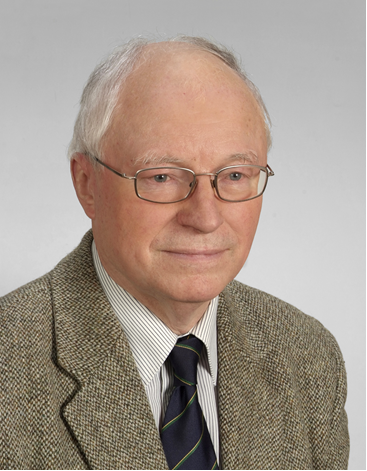Farewell to the President of our Council
Prof. dr hab. dr h. c. mult. Jerzego Wilkina (1947-2023)

Outstanding scientist, academic teacher, creative researcher, unquestionable authority, great friend, extraordinary human being.
From 1970 to 2014 he was employed at the Faculty of Economic Sciences at the University of Warsaw, where he served as Vice-Dean and Dean of the Faculty, and in the years (1996-2014) headed the Department of Political Economy, the oldest department in the Faculty. He worked on institutional economics, political economy and economics of the public sphere, and was the author of
ca. He was the author of ca. 400 scientific publications on such issues as rural and agricultural development, relations between the state and the economy, or the methodology of economics and philosophy of science. He lectured at many Polish and foreign universities.
Distinguished employee of the Institute of Rural and Agricultural Development of the Polish Academy of Sciences. Initiator of the establishment of the Department of European Integration at the Institute, of which he was the Head for many years. Full member of the Polish Academy of Sciences, honorary doctorate of the University of Białystok, the Warsaw University of Life Sciences and the University of Warmia and Mazury. He was awarded the Knight's Cross of the Order of Polonia Restituta and the Golden Cross of Merit for outstanding achievements in scientific and research activities.
Professor Jerzy Wilkin has also been involved with our Foundation for more than 20 years. In 1999, he came to the FDPA with the idea of issuing cyclical reports on the state of the Polish countryside.
We immediately understood that such a project was a great opportunity and that we had managed to catch the proverbial God by the feet. Together we found a sponsor for this project and so the first "Report on the state of the countryside. Polish countryside 2000". For the next twenty-plus years the professor was the editor and co-author of the reports and was their pillar. He assembled a team of experts who wanted to contribute to them, above all because Professor Wilkin was the author of them. The report remains one of the most important initiatives we have ever undertaken.
In the early period of our cooperation, Professor Wilkin worked intensively, not only academically, but also engaged in all initiatives strengthening the building of civil society and promoting Poland's accession to the European Union in rural areas, thus inspiring us to such activities as well. Professor Wilkin repeatedly stressed that Poland's accession to the EU brought about a downright civilisational change in the Polish countryside, and he was very proud of this. To the end, he was an ardent supporter of our presence in European structures and a defender of democratic standards.
We managed to convince him to join the board of our foundation in 2004, and after eight years he agreed to become its chairman. This was a great ennoblement for us, as his voice gave prominence to the debate on Polish rural issues. His idea also gave birth to the competition "Polish countryside heritage and future", which was intended to involve young scientists in the debate on countryside, whose promotion the Professor was always very keen on.
The Professor valued our annual away meetings of the Council, where we met with rural entrepreneurs, local government officials and with community members. He took a keen interest in their problems and economic practice. He had a wealth of economic knowledge, but he also showed great sensitivity to social issues such as the trauma of the post-state farm areas. We will remember with nostalgia the get-togethers of the entire staff, as he called the Foundation team, evening talks.
As President, he has excelled in making the Council and the Board a harmonised team. It was both a pleasure and an honour to work with him. He was a true authority for us, not only because of his academic achievements, but because of the kind of man he was and the example he set for us. He always behaved modestly, with gentle dignity, with respect for others, regardless of their status. He cared about our Foundation and each of us individually. He supported us and motivated us to act. He was also a well-liked person by all, with an extraordinary sense of humour. He was a great conversationalist with an extraordinary memory and intelligence, and knew how to enjoy life.
We will long remember the Professor's farewell on 20 January 2023 both at the Institute of Rural and Agricultural Sciences of the Polish Academy of Sciences and at Powązki Cemetery. It was extremely poignant and moving. It made it even clearer how much we have all lost, but also what a gift he was to us. Although it was a sad day, it was at the same time inspiring because we could realise the scale of Professor Warmus's achievements and activities. There is a saying that there are no irreplaceable people, but the example of Professor Warmus makes us doubt its validity. We will not be able to replace him, but we will try with our work and attitude to be worthy of his memory.
